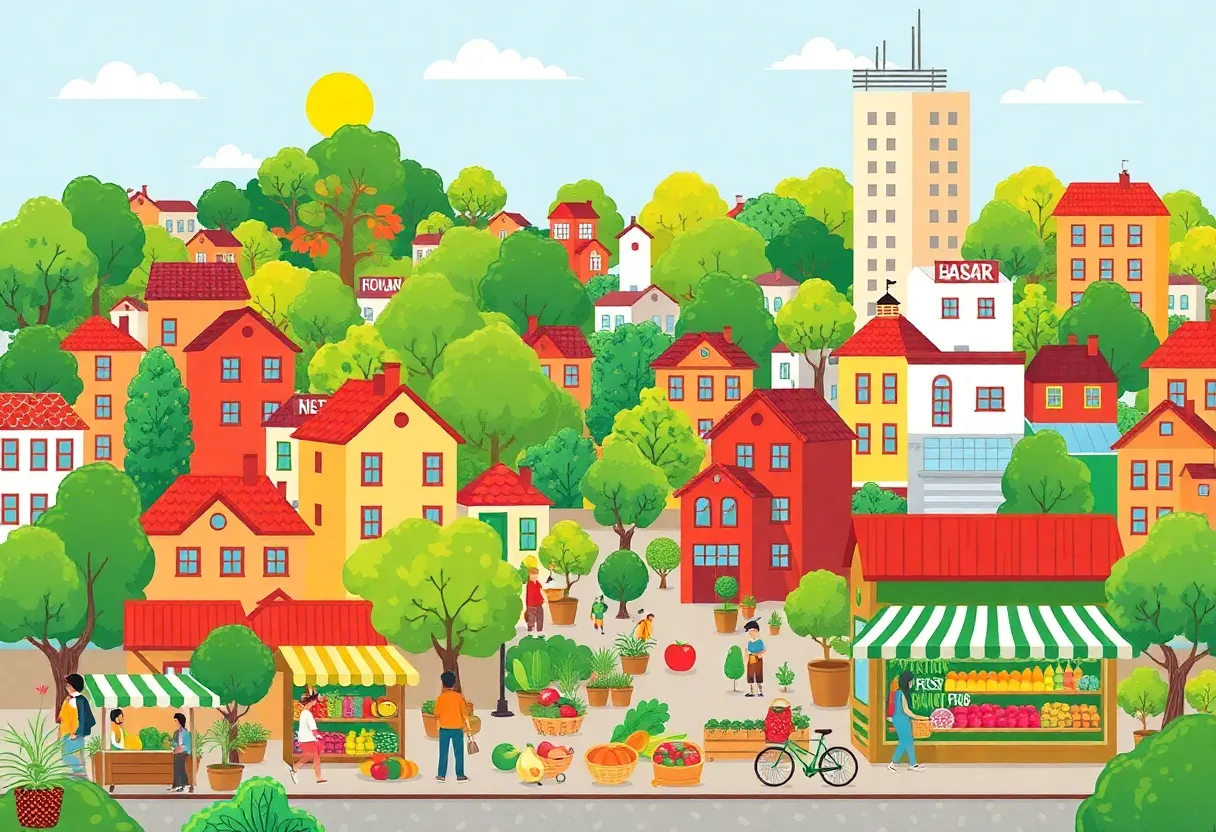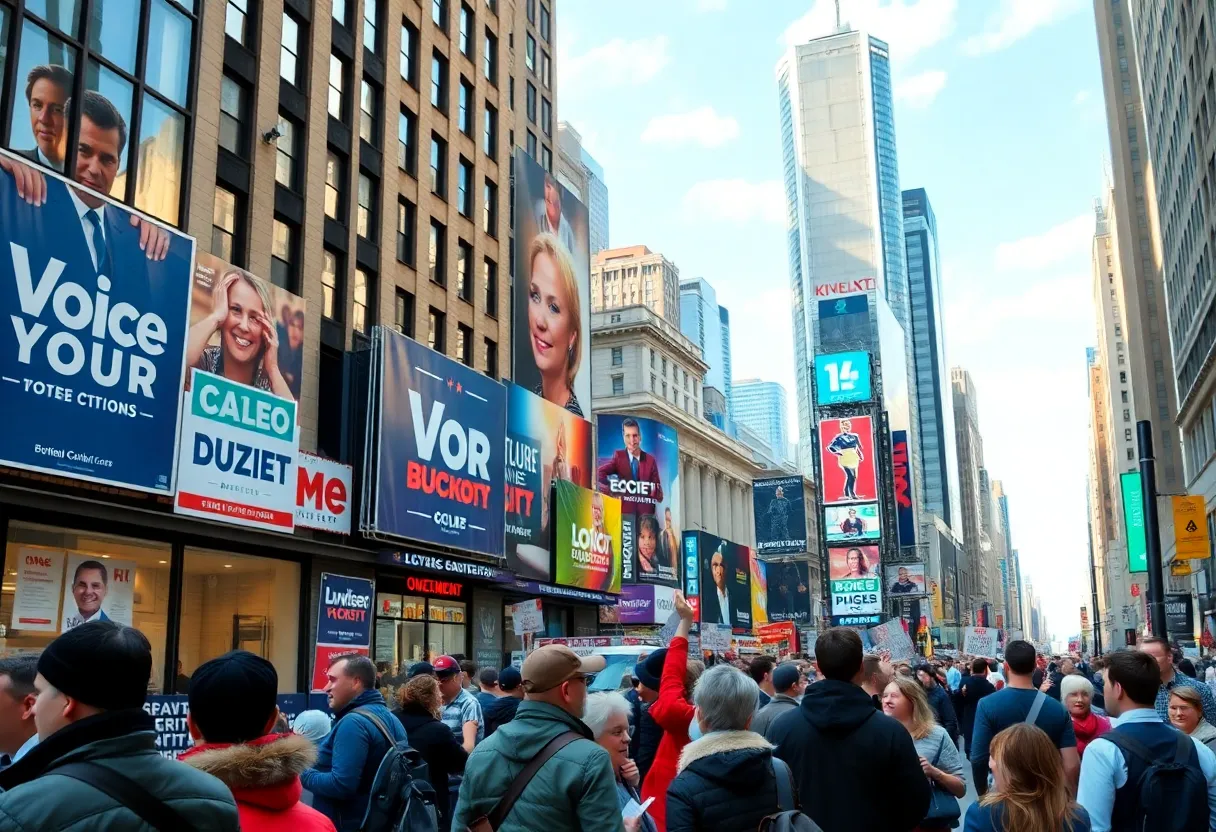News Summary
Zohran Mamdani, the Democratic primary winner for New York City mayor, proposes establishing city-owned grocery stores in each of the five boroughs. This initiative aims to tackle food insecurity and provide affordable groceries to underserved neighborhoods. While supporters advocate for the project as a means to enhance food accessibility, critics argue it may threaten existing businesses and economic viability. Mamdani’s plan also draws on successful models from other U.S. cities combating food scarcity, but questions remain about its operational structure and funding.
New York City – Zohran Mamdani, the Democratic primary winner and leading candidate for mayor of New York City, has unveiled a plan to establish a network of five city-owned grocery stores, with one located in each of the five boroughs. This initiative aims to combat food insecurity and provide lower-priced groceries to neighborhoods that currently have limited access to supermarkets.
Recent statistics reveal that over 30% of residents in certain areas of New York City experience food insecurity, highlighting the urgent need for affordable grocery options. Mamdani’s proposal comes amid widespread concerns about high food prices and dwindling access to nutritious foods for many New Yorkers. The establishment of municipal grocery stores is positioned as a critical step towards addressing these challenges.
However, the response to Mamdani’s plan has been mixed, with critics denouncing it as a “Soviet-style disaster” and expressing concerns about its economic viability. Prominent grocery industry leaders, including John Catsimatidis, the owner of Gristedes supermarkets, have threatened to shut down or sell their stores if Mamdani becomes mayor. Critics argue that government-operated stores could result in inefficiencies and lack the necessary market discipline, potentially leading to negative consequences for existing businesses.
Despite the backlash, Mamdani’s proposal draws inspiration from existing government-owned grocery models, such as commissaries for military personnel and municipal markets in rural regions. Similar initiatives have been adopted in other parts of the United States; for example, Atlanta is planning to open two municipal grocery stores aimed at addressing food scarcity. Additionally, cities like Madison, Wisconsin, and rural Venice, Illinois, are exploring similar ventures.
Supporters of municipal grocery stores, including food policy experts, underscore their potential to prioritize affordability over profit margins. This could provide a crucial safety net for those struggling financially in densely populated urban settings like New York City. However, the specifics of how these stores will operate and whether they will be constructed or leased remain uncertain, as do the management structures overseeing them.
Mamdani estimates that the grocery store project would cost around $60 million, proposing to partially fund it through the reallocation of tax breaks currently given to private supermarket chains. The plan aims to offer more reliable pricing than current city initiatives that incentivize private supermarkets, yet do not guarantee low costs for customers. The potential for municipal stores to undercut prices has raised alarms among critics, who caution that such actions could threaten the viability of local grocers and bodegas, further exacerbating the food access challenges these establishments aim to resolve.
Proponents of the municipal grocery store concept argue that it could serve as a vital resource for New Yorkers facing economic hardships. They believe that strong public sector involvement is necessary to enhance food accessibility, with an emphasis on community input guiding the project’s implementation. Nevertheless, the success of these city-owned stores may depend on their ability to attract a diverse customer base across varying income levels, ensuring that they remain financially sustainable.
It is noteworthy that municipal grocery stores have faced significant challenges in other towns, with some closing due to insufficient demand. Mamdani’s grocery proposal reflects a broader attempt at innovative public policy designed to combat food deserts and escalating costs associated with essential goods. As the debate around this proposal continues, many will be closely watching its potential impact on New York City’s food landscape and the lives of its residents.
Deeper Dive: News & Info About This Topic
- Fox Business: Mamdani’s Public Grocery Stores May Have Devastating Effects on City’s Food Supply
- Wikipedia: Food Insecurity
- The Economist: Should Cities Run Their Own Supermarkets?
- Google Search: Municipal Grocery Stores
- Bloomberg: Mamdani’s Proposal for City-Owned Stores Won’t Work for NYC or Elsewhere
- Encyclopedia Britannica: Supermarket
- New York Post: NYC Bodega Owners Worry Mamdani Will Put Them Out of Business
- Google News: New York City Grocery Stores








